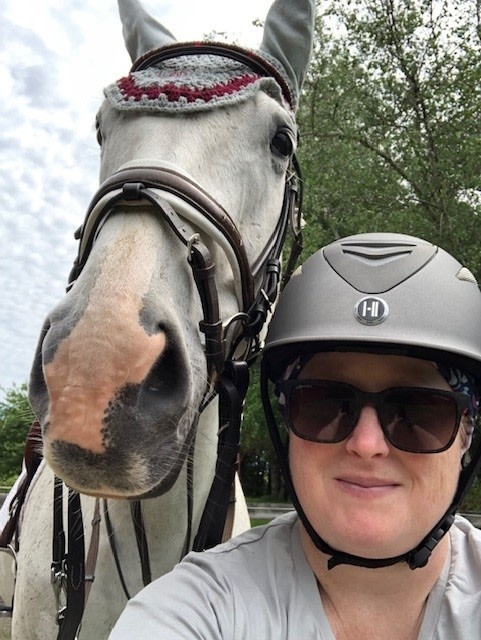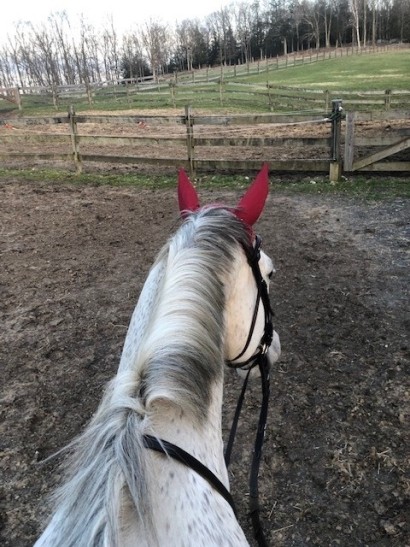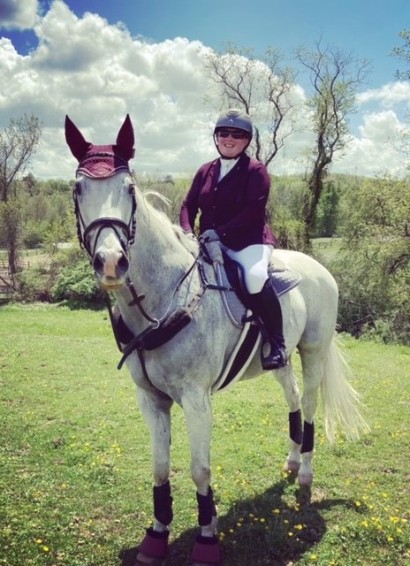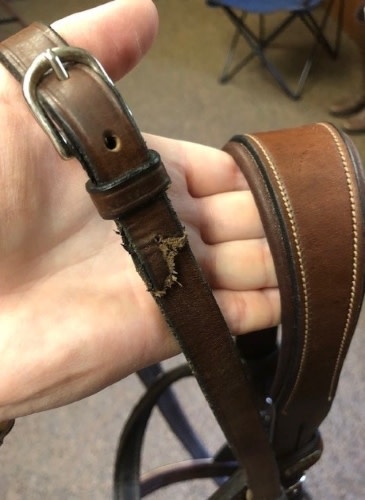Overcoming a Setback in the Saddle

I think most equestrians would agree that when it comes to horses, there are a lot of ups and downs. From behavioral issues to injuries and fitness challenges, owning and working with horses is certainly a rollercoaster! Overcoming one of these downfalls and being able to move forward isn’t often easy. Last year, I experienced a tough fall that took me quite awhile to come back from, and I thought maybe by sharing my experience I could possibly help others dealing with a similar situation.
Falling off a horse at any age can be nerve-racking and potentially dangerous, but as you get older it gets even more daunting. We all know that by riding we put ourselves at risk, and for many of us that’s a chance we’re willing to take—myself included. I’m super lucky that my Thoroughbred Max generally has a really good brain, but at the end of the day, he’s still a 1,200-pound animal, and things happen.

Last summer, I was rehabbing Max from a bout of cellulitis that had put him out of commission for about two months, and it was only our second ride after his time off. We’d undergone a few changes at the farm, and he was anxious about the new horses that had moved in. As we were riding that day, he was clearly “up.” Max had never really misbehaved to the point I felt like I wasn’t in control, so I felt confident in continuing our ride and trying to work through his anxiousness, even though he felt a bit explosive.
We were basically tack walking at this point, so I thought maybe taking him over to the field across the street away from the new horses would help him focus more on me. Things were under control and going well until a horse back at the barn whinnied, and Max lost it.
He started crow-hopping and porpoising until I was hanging off his side. At that point, I knew I was going down. There’s nothing worse than that “oh no!” feeling when you’ve completely lost control and then having to give in to the fact that there’s nothing you can do about it.
Luckily, I don’t remember hitting the ground, but I do remember waking up to the sound of birds chirping in the field after blacking out. It felt like I’d just been asleep and dreaming, but as I started to come to, I realized what had happened and that something was terribly wrong.
As I struggled to stand up to assess the situation, I started to panic as I realized I didn’t know where Max was, and I was in a lot of pain. I somehow made it back to the barn and discovered Max sheepishly standing near his buddies with broken tack and a bewildered look on his face. I ended up with a concussion, a broken hand, and bruised ribs, but for the first time in my 35-plus years of riding, I was shaken.

In the days that followed, I took it slow and found that I needed to acknowledge and understand what happened in order to heal. I left my saddle that was scratched up from Max’s run home uncovered until I could come to terms with cleaning it. I hung my broken bridle on its hook, but encouraged myself to look at the broken reins and cheekpiece as a gentle reminder of what happened.
I washed my dirt-stained clothes and gloves, knowing that many of those stains will always be there, and that’s OK. In time, I allowed myself to clean and condition my saddle and put it away. Though I flash back to my accident when I use that particular saddle pad, I don’t let it discourage me from using it since it’s still my favorite pad. I spent time with Max on the ground and rebuilt our relationship of trust since he also had some trauma from the incident.
In time, on a beautiful fall day, I saddled up again and had a lovely first ride back on my horse. I was nervous to ride for the first time in my life, but I still trust him and now have a better understanding of both of our limits. It felt so great to be back in the saddle, and I think maybe going through an experience like that actually gave me a greater sense of confidence. If I could overcome something like that, maybe my relationship with Max would be even stronger than before, and we would both have a better understanding of each other.

Though I’ve had other falls and horse accidents over the years, I really learned the most from this one. There is no set timeframe for healing, and sometimes facing your obstacles and fears in due time works the best. What matters most is your relationship with your horse and truly listening to each other’s needs. If your horse is telling you that he has boundaries, you don’t always need to push those.
I purposely left the end of my broken reins from that day as they are a reminder of my strength and a nod to never giving up. This year, Max and I’ve had a successful season so far, and we’ve both healed emotionally and physically from that day.
Hug your horse, dig deep, and push through the tough days—it’s worth it!